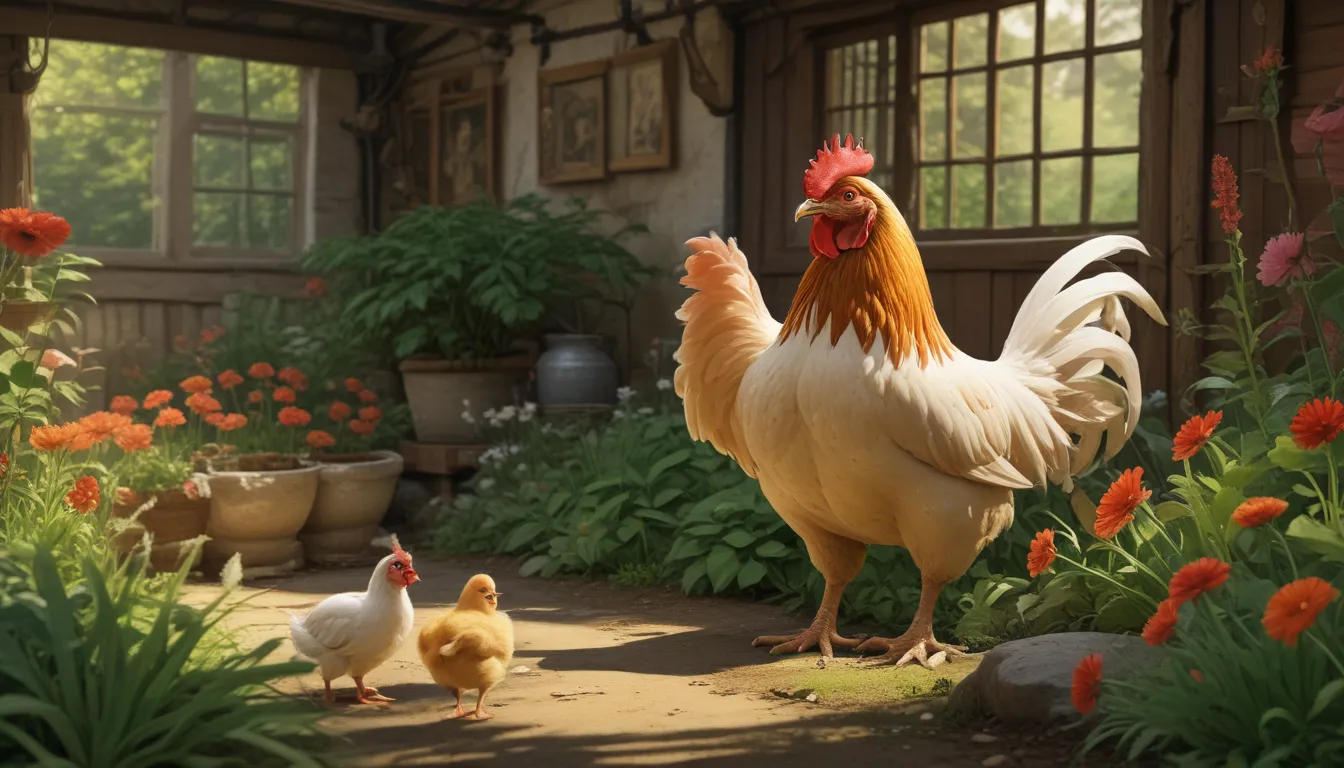Tips for Incorporating Chickens in Your Garden

As someone who has spent a significant amount of time living on a farm or homestead, I’ve learned a lot about the balance between maintaining a healthy garden and keeping a flock of chickens. Chickens can be wonderful and inquisitive creatures that provide eggs for your family, but they can also be destructive to your garden if not managed properly. In this article, I’ll share some valuable tips and insights on how you can integrate chickens into your garden in a way that benefits both your plants and your feathered friends.
The Selfish Nature of Chickens
One of the key things to understand about chickens is that they can be quite selfish when it comes to their behavior around plants. Some of their destructive behaviors include eating freshly sown seeds, pulling up seedlings, creating dust baths, stripping plants of their leaves and flowers, and eating newly set-on fruits. To minimize the damage chickens can cause to your garden, it’s important to set boundaries and create a plan for integrating them into your gardening routine.
Tips for Managing Chickens in Your Garden:
- Create a schedule: Determine the best times to allow chickens in different areas of your garden based on the growth stages of your plants.
- Implement proper fencing: Use deer or rabbit fencing to divide your garden into zones and keep chickens out of the areas where they could cause harm.
- Choose the right chickens: Opt for smaller, less experienced birds that are less likely to fly over fencing or cause damage to plants.
- Consider perimeter work: Build a chicken run along the outside walls of your garden to allow chickens to work around the edges without entering the main planting areas.
- Utilize raised beds: Position chickens around raised beds to allow them to do pest control work while keeping them away from tender plants.
By following these tips, you can create a more harmonious relationship between your chickens and your garden, allowing both to thrive in their respective environments.
Time Zone Gardening
To maximize the benefits of having chickens in your garden while minimizing the damage they can cause, consider implementing a “Time Zone Gardening” approach. This involves grouping plants that produce at around the same time together and rotating chickens through these zones at the appropriate times. By structuring your garden in this way, you can ensure that chickens have access to areas where they can do pest control work without harming your plants.
Benefits of Time Zone Gardening:
- Minimize plant damage: By zoning your garden based on plant growth stages, you can limit the time when chickens are allowed in each area, reducing the risk of damage.
- Optimize pest control: By strategically placing chickens in different zones throughout the growing season, you can improve pest control efforts without compromising plant health.
- Create a balanced ecosystem: By integrating chickens into your garden in a structured way, you can create a more balanced ecosystem where plants and animals coexist harmoniously.
Overall, Time Zone Gardening can help you make the most of having chickens in your garden, allowing you to enjoy the benefits of their pest control services without sacrificing the health of your plants.
Addressing Common Challenges
While incorporating chickens into your garden can be a rewarding experience, it’s important to be aware of common challenges that may arise. Some troublemakers to look out for include broody hens, roosters, and hen and chick sets, all of which can cause disruptions in your garden ecosystem. By being prepared to address these challenges and set clear boundaries for your feathered friends, you can create a more harmonious environment where chickens and plants can thrive together.
Common Garden Challenges:
- Broody hens: Keep broody hens near their regular laying boxes to prevent them from nesting in undesirable locations.
- Roosters: Consider keeping roosters separate from your garden to avoid conflicts with hens and distractions from pest control work.
- Hen and chick sets: Keep young chicks in a secure environment to prevent them from getting lost or causing distress among the flock.
By being proactive in addressing these challenges, you can create a more peaceful and productive garden environment where chickens and plants can coexist in harmony.
A Natural Partnership
In conclusion, incorporating chickens into your garden can be a natural and beneficial partnership when managed effectively. By setting clear boundaries, creating a structured plan for integrating chickens into your gardening routine, and addressing common challenges, you can create a more harmonious environment where plants and animals thrive together. Whether you choose to allow chickens inside your garden fence or implement perimeter work and raised bed gardening, there are various ways to make the most of having chickens in your garden.
Remember that the key to a successful partnership between chickens and your garden is finding a balance that works for both your plants and your feathered friends. By following the tips and strategies outlined in this article, you can create a sustainable and efficient system where chickens and the garden complement each other in a harmonious way.
Will you be incorporating chickens into your garden this year? Share your experiences and insights in the comments below! And don’t forget to check out our article on growing greens for healthy and happy chickens to learn more about how you can support your feathered friends with nutritious and delicious treats from your garden.
*





